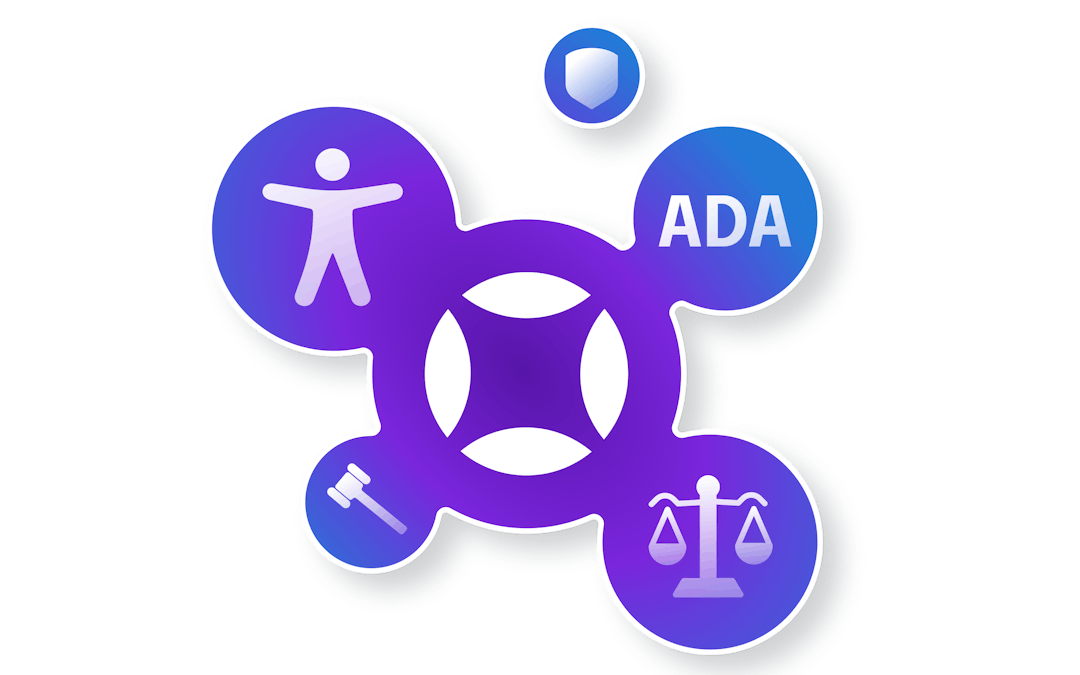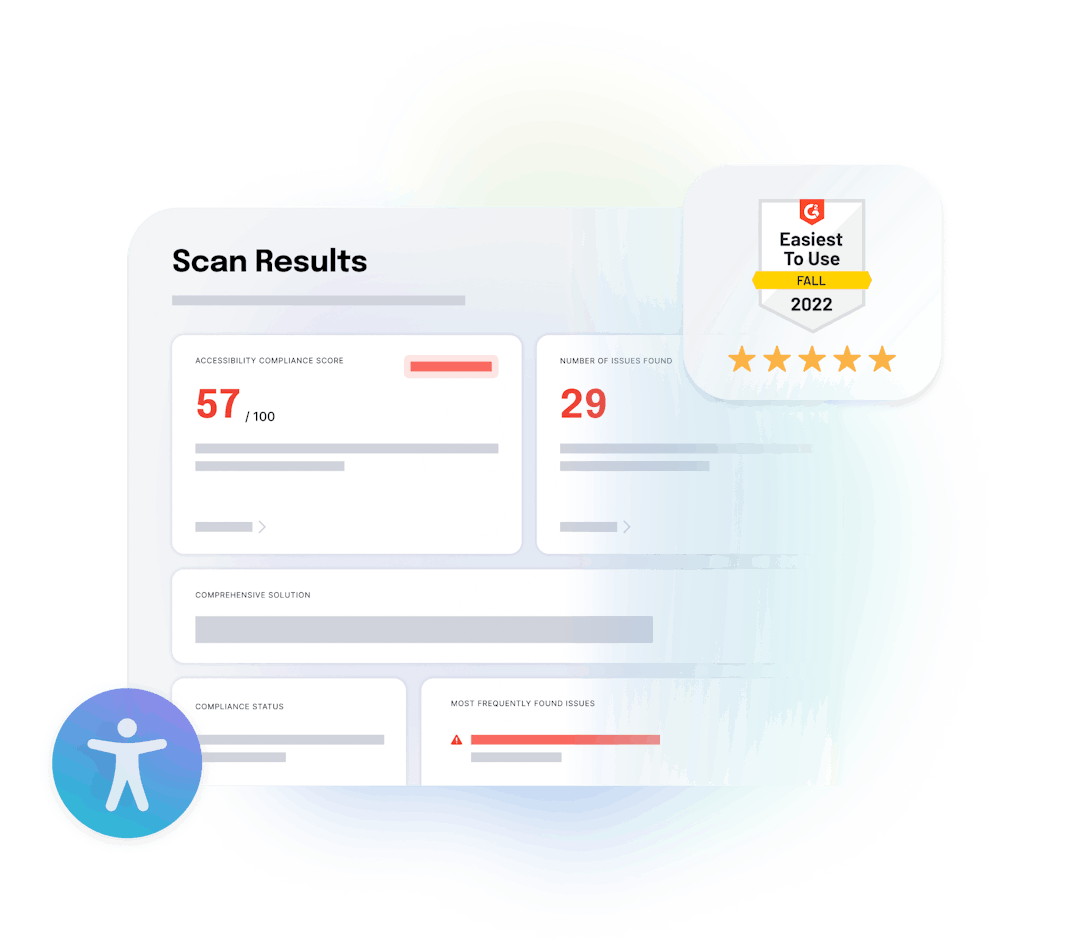Compliance Guides
Web Accessibility Compliance, Explained
Learn about web accessibility compliance, laws, and guidelines for businesses, organizations, and government agencies.

Learn About Web Accessibility Compliance
In today’s world, the inability to navigate the internet is debilitating. And if your digital services aren’t accessible to everyone, you’re effectively shutting out up to 61 million people, or one in four U.S. adults living with a disability.
Many businesses, organizations, and government agencies often don’t learn about digital accessibility compliance until they’re served a lawsuit or legal demand letter, making understanding how accessibility laws and legislature apply to digital information, communications, and websites critical. Navigating through these laws can be confusing, but AudioEye® is here to help.
Learn more about how the different regulations apply to your website below, and how AudioEye's hybrid accessibility solutions can keep you on the path of compliance.
ADA Web Accessibility
Title III of the Americans with Disabilities Act (ADA) requires businesses to make “reasonable modifications” to serve individuals with disabilities in all areas of public life, including the internet. Get a deeper understanding of website accessibility compliance standards and the ADA’s regulations.
Learn About ADA
WCAG Web Accessibility
The Web Content Accessibility Guidelines (WCAG) are a set of global web standards that aim to make the internet a more inclusive and accessible space for all. While WCAG isn’t a regulation, it is the most common standard for U.S. courts to reference when accessing compliance under accessibility legislation.
Learn About WCAG
AODA Web Accessibility
The Accessibility for Ontarians with Disabilities Act, or AODA, aims to identify and remove physical and virtual access barriers for people with disabilities. This legislature applies specifically to government bodies, non-profit organizations, and commercial organizations in Ontario with at least one employee.
Learn About AODA
Section 508 Web Accessibility
Section 508 of the Rehabilitation Act requires federal, state, county, municipal authorities, and contractors to federal agencies to ensure equal access to digital information and communications to individuals with disabilities.
Learn About Section 508
California & Unruh Web Accessibility
Organizations in California, or with customers in California, face the burden of compliance with both federal and state laws around digital accessibility. California AB 434 and the Unruh Civil Rights Act apply to state agencies, entities, and businesses.
Learn About CA State
Lawsuits & Legal Compliance
Reduce your risk of a digital accessibility lawsuit. AudioEye provides the highest level of legal protection using automation providing remediations against WCAG 2.2 AA standards.
Learn About Lawsuits
Website Accessibility Checker
Check your website’s compliance in seconds
Find out if your site is accessible for people with disabilities and meets the ADA, WCAG, and other requirements.
